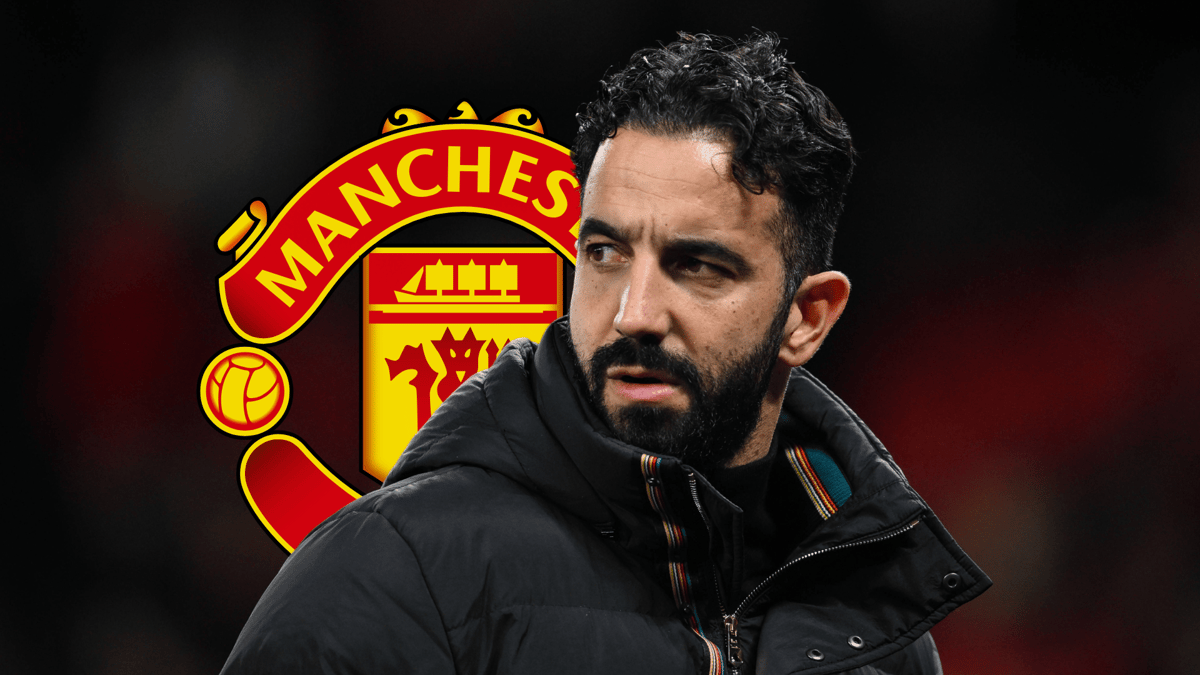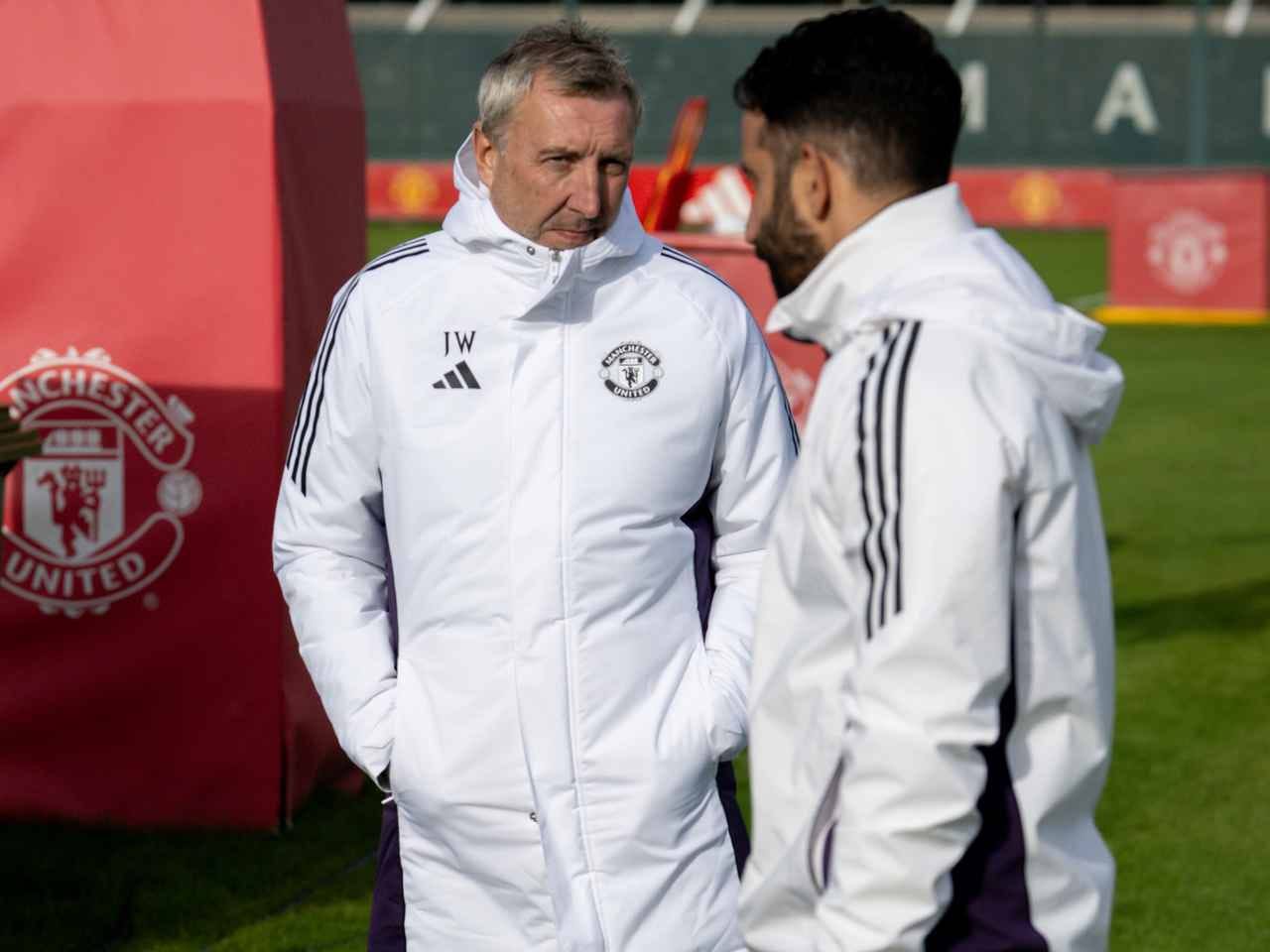Ruben Amorim’s Year at Manchester United: Unfiltered Honesty or Unfounded Hype?
No Revolution, Just Reinvention by Repetition
It’s been a year since Ruben Amorim took the reins at Manchester United, ushering in what was sold as a new era of tactical intelligence, discipline and cultural reset. What we have actually witnessed is a relentless cycle of marginal progress, punctuated by heavy defeats, lofty rhetoric masking fragile results, and a system defined more by stubbornness than strategy.
This time last year, United were in freefall under Erik ten Hag. Amorim was hailed as the moderniser, the visionary from Portugal with ideas sharp enough to cut through the club’s long-standing institutional rot. And yes, he is loud, he is forthright, he is brutally honest. But what exactly has all that noise delivered? After 12 months, Manchester United still sit outside the top four, playing football that is confusing to watch and even harder to define.
The club might claim it is early days in a three-year plan, but no project deserves a free pass after such a sustained run of mediocrity. A club of United’s stature, resource and profile should not be giving pats on the back for finishing seventh and calling it foundation-building.
Amorim’s Style: Hard Truths, Hollow Impact
Let us get one thing straight. Ruben Amorim has not inherited a golden generation. The United dressing room he walked into was a shambles, riddled with poor form, indiscipline and divided loyalties. That said, his response has not exactly elevated the squad either. His preferred method of criticism, group humiliation instead of private correction, might have worked in Lisbon, but this is Carrington, not the Estádio José Alvalade.
He publicly chastised Manuel Ugarte, a player he previously worked with at Sporting, in front of the entire squad. Alejandro Garnacho was told to find a better agent if he planned to survive the summer window. Even with senior players like Bruno Fernandes receiving individual time, the broader squad has been left to interpret Amorim’s vision in training ground sermons delivered with more bark than nuance.
The comparisons to the methods of Sir Alex Ferguson are flattering only at a superficial level. Amorim is not playing psychological chess. He is handing out verbal grenades and expecting players to either explode or evolve. Footballers are not military recruits. Not every dressing room thrives on conflict, especially when results do not follow.
Formation Fixation and Tactical Stubbornness
Amorim was brought in with the understanding that he would implement a 3-4-2-1. A tactical blueprint, fine, in theory. But when the same formation is deployed religiously, even in defeat, it stops being a philosophy and becomes a prison.
There have been glimpses of flexibility. Training sessions occasionally feature a 4-3-3, but only in specific phases of play. United insiders even say not even the Pope could convince Amorim to shift from his back-three obsession. That is the sort of quote that belongs in a Netflix documentary, not on the lips of a man managing a club desperate for tactical evolution.
If his idea was truly working, he would not need to remind people that results are not the only measure of success. He might believe his 3-4-2-1 system is the bridge to elite football, but the reality is it has often looked like a cul-de-sac. United have been porous at the back and inconsistent in the final third. The ball moves fast, yes, but the team rarely does anything intelligent with it.
Amorim’s most impressive tactical moment this season was linking Bryan Mbeumo and Amad down the right. That partnership offered tempo and threat. But it also raised the obvious question, why not adapt your formation to get more from your better players, rather than force them into rigid roles for the sake of an idea?
If Jason Wilcox prefers 4-3-3, as suggested, and Amorim refuses to budge, then United’s supposed modern football structure looks more like a Cold War standoff.
Honesty Without Success is Just Noise
Amorim talks a big game. And to his credit, he does not hide behind clichés or PR varnish. When United were humbled by Grimsby in the Carabao Cup, he said the players “spoke really loud” with their performance, essentially implying they had quit on him. He followed that up by describing his squad as perhaps the worst team in United’s history.
For a coach who admits to saying the same things to the media as he does in the dressing room, it is no wonder the squad morale has fluctuated like a bad stock chart. Some players, naturally, respond to being called out. Others shut down. When results are dire and a manager doubles down on public criticism, it can spark rebellion, not renaissance.
It was after that Brighton game, where he smashed a television screen in the dressing room, that we saw a man less in control and more exasperated. The image of Amorim as a calm strategist gave way to a frustrated manager trying to force his will on a group that is either unwilling or incapable of responding in kind.
Even now, as results show marginal improvement, consistency remains elusive. This team might go on a five-match unbeaten run, then lose to a side battling relegation. For every decent win over Chelsea or Liverpool, there is a collapse waiting around the corner. That is not growth, it is guessing.
The Verdict After One Year
Let us not kid ourselves. United’s hierarchy, particularly INEOS and Omar Berrada, tied their reputations to Amorim’s success. That investment, political as much as footballing, is why he is still in post. If it were purely a matter of performance, you could make a strong case that United should already be looking elsewhere.
The job of Manchester United manager is to build an elite football team, not simply to look like one in a press conference. Charm, charisma and straight talk are not tactics. At some point, you have to win games, control performances and string together meaningful runs of form. That has not happened.
Amorim might have bought himself time with his media presence and alignment with United’s executives, but fans are not buying that. The team still concedes too many, scores too few and looks a long way off from challenging the league’s best. The table is congested, yes, but so is the list of excuses.
If this is a rebuild, it is being held together with chewing gum and YouTube clips of pressing drills. Amorim’s belief in his methods is admirable, but belief without adaptability is arrogance, and at Old Trafford, that combination has failed many before him.
For Manchester United, the next 12 months cannot be about learning curves or long-term vision. They need to be about results. Otherwise, Ruben Amorim might find out that the patience of executives lasts about as long as a five-match unbeaten run.
And even that, so far, is proving hard to come by.



